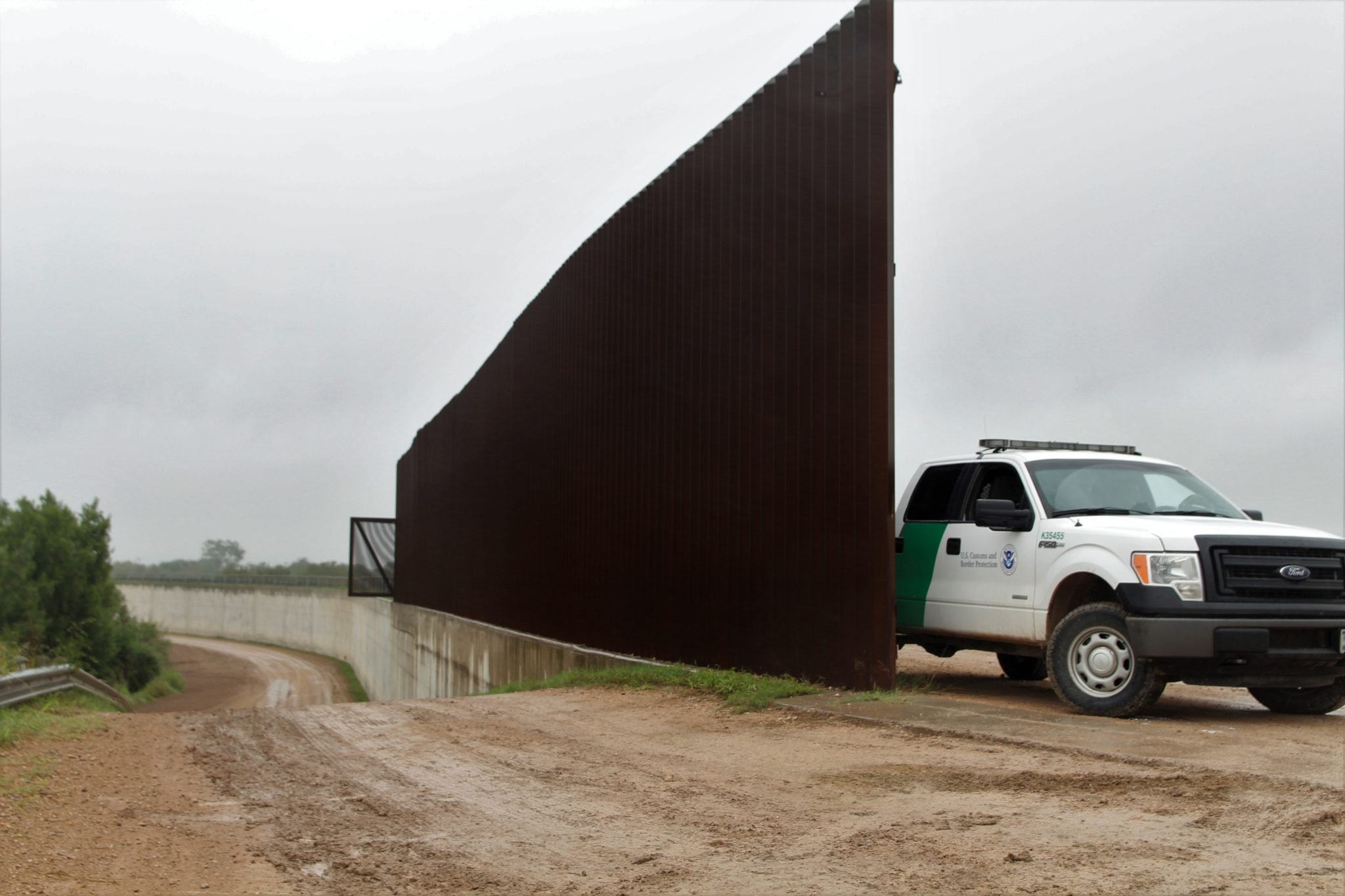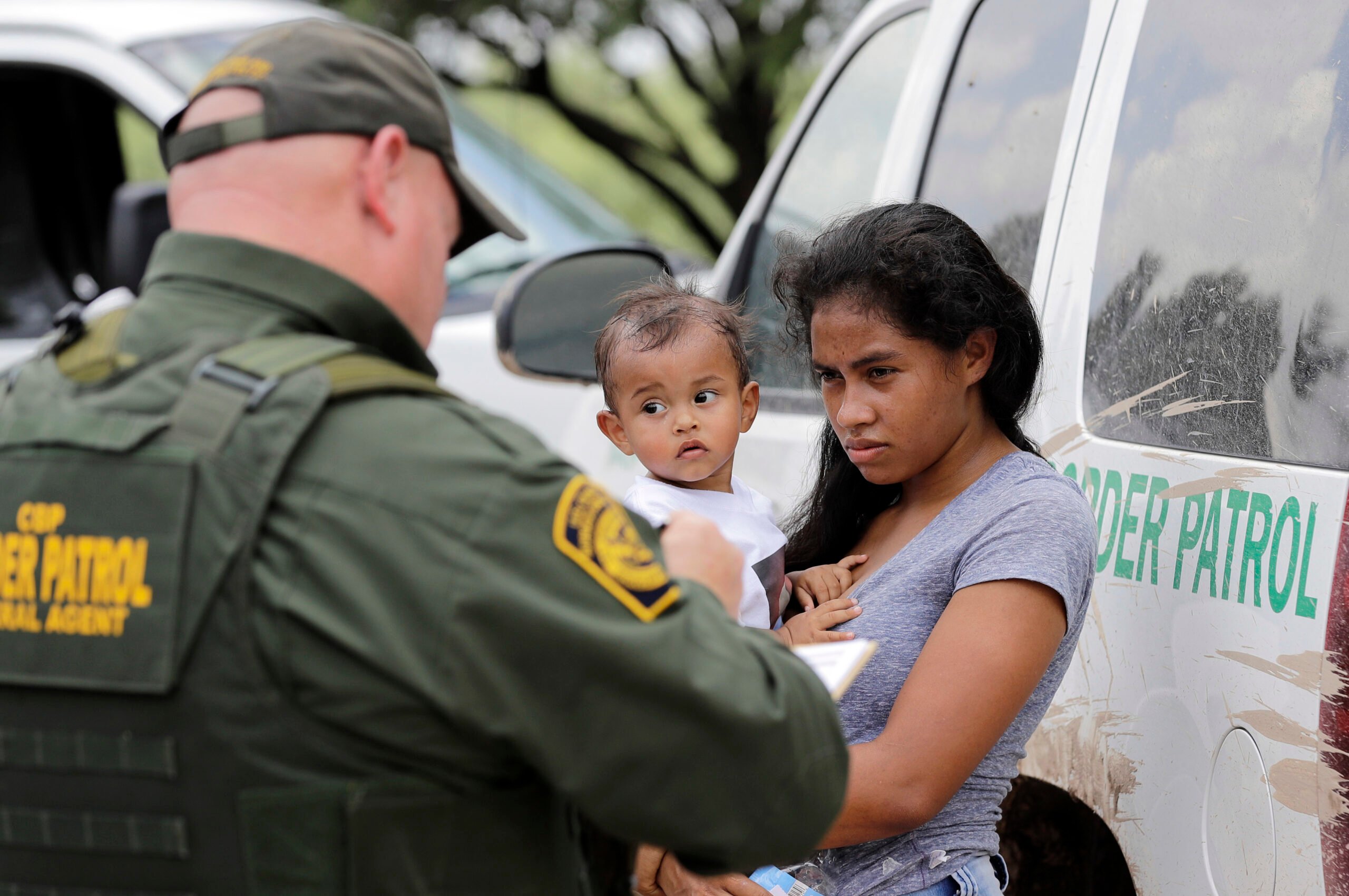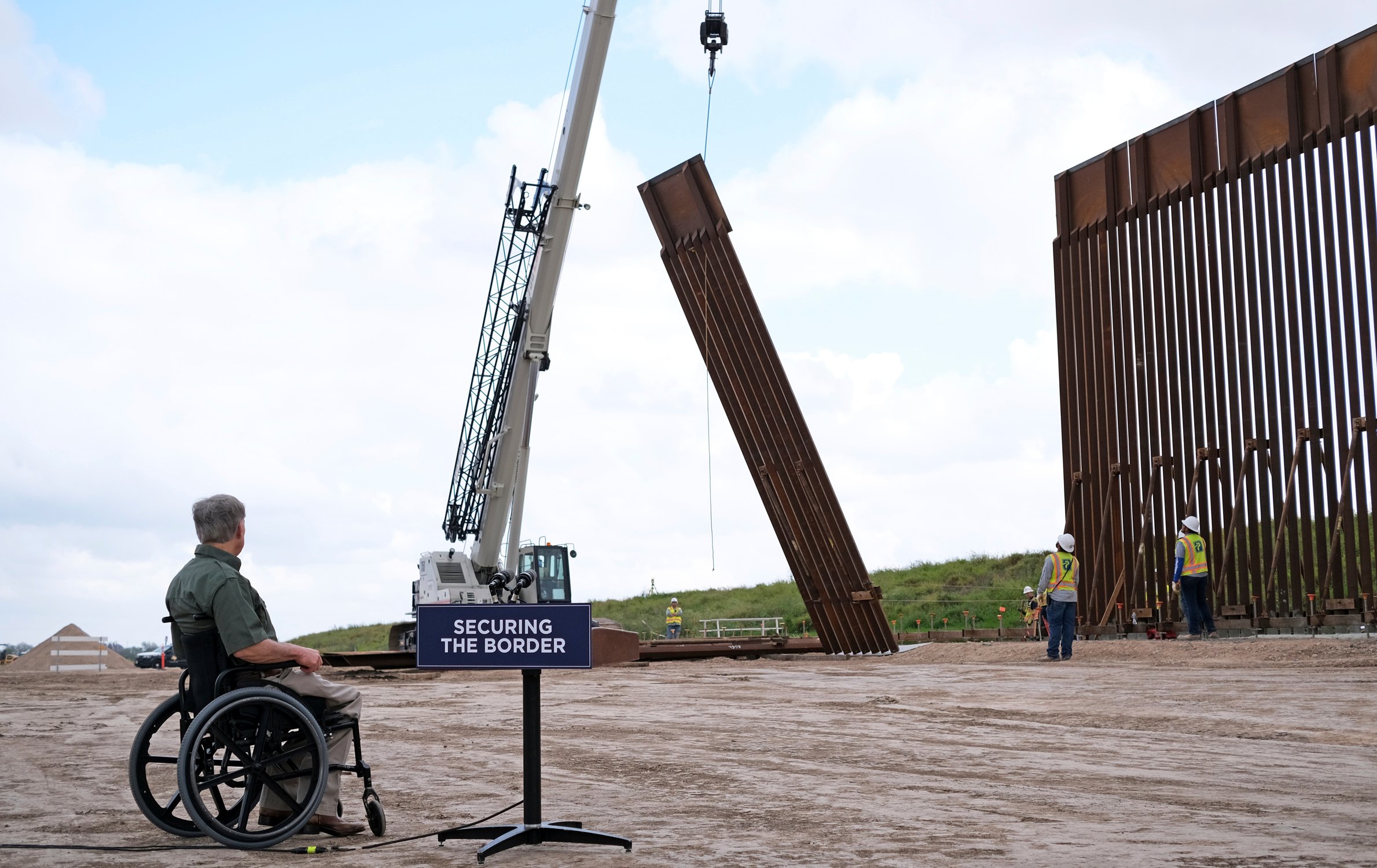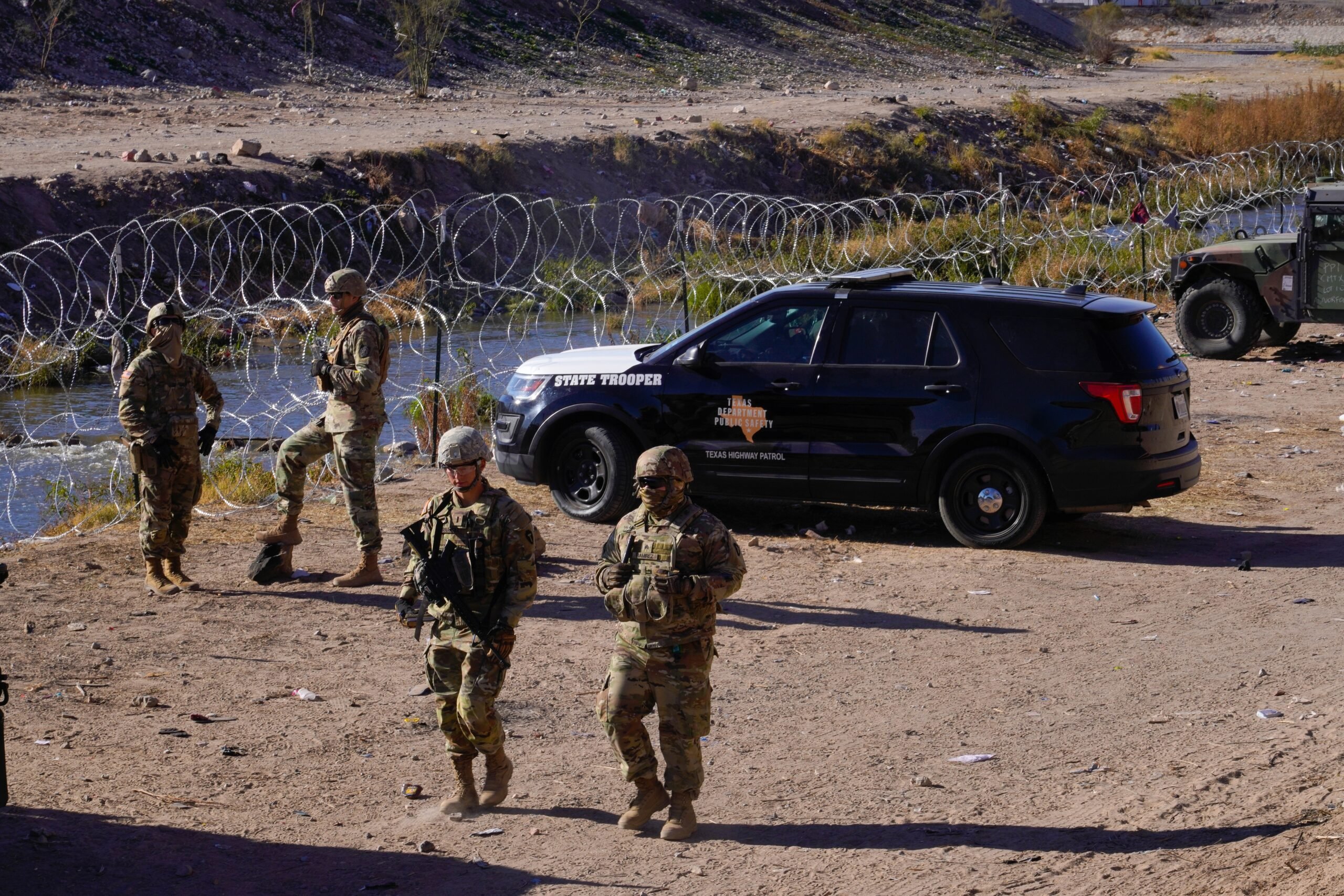
Federal Judge Halts Texas Deportation Law
"Surges in immigration do not constitute an 'invasion' within the meaning of the Constitution."

March 1 Update: On Thursday, federal judge David Ezra blocked Texas from enforcing its state deportations law, Senate Bill 4, which was set to take effect March 5. In his ruling, Ezra stated that both the U.S. Constitution and Supreme Court precedent “affirm that states may not exercise immigration enforcement power except as authorized by the federal government.” He also stated, referencing a dangerous and misleading argument made by the State of Texas: “Surges in immigration do not constitute an ‘invasion’ within the meaning of the Constitution, nor is Texas engaging in war by enforcing SB 4.” (Read the full ruling here and see here for a fuller exploration of the legal history.)
The state swiftly filed a notice of appeal to the U.S. Fifth Circuit Court of Appeals. In a statement, Governor Greg Abbott said: “Texas will immediately appeal this decision, and we will not back down. … Even from the bench, this District Judge acknowledged that this case will ultimately be decided by the U.S. Supreme Court.”
Original February 15 Story: In a packed federal courtroom in downtown Austin Thursday morning, attorneys for the United States government squared off with attorneys for the State of Texas over the fate of the latter’s Senate Bill 4, an unprecedented anti-immigrant law creating a state deportation scheme, which is set to take effect March 5 unless the court halts it.
During a three-hour hearing, U.S. District Judge David Ezra, a Reagan appointee, appeared to favor the United States’ position that the law is likely unconstitutional and should be blocked. Ezra peppered Texas’ lead attorney Ryan Walters with constant skeptical questions and criticized the bill as sloppy, saying that “A little more care, in fact maybe a lot more care, could have gone into the drafting of this statute.” Ezra also said the bill could portend each state having its own immigration system, which would “turn us from the United States of America to a confederation of states”—precisely what the Civil War prevented, he noted.
“It just slaps the federal immigration law right in the face.”
The judge also said, regarding one of SB 4’s provisions: “It just slaps the federal immigration law right in the face.”
At the hearing’s conclusion, Ezra said he would decide on enjoining the law “as quickly as [he] possibly can” and well before the March 5 deadline. (Anand Balakrishnan for the American Civil Liberties Union also argued before the court Thursday, as a separate lawsuit that organization filed had been consolidated with the government’s.)
SB 4 creates state-level crimes for illegally entering or reentering the country in addition to inaugurating a state deportation scheme. At present, the federal government enforces criminal entry and reentry statutes at its discretion and is the sole arbiter of deportation decisions. The Texas law constitutes an unprecedented transfer of exclusively federal power to a state and challenges 150 years of jurisprudence on immigration. Some, including Judge Ezra, argue it challenges the United States’ very cohesion as a single nation.
SB 4 makes it a misdemeanor crime for non-U.S. citizens to improperly enter Texas from another nation—for example, by wading across the Rio Grande from Mexico. To avoid prosecution and a possible six-month jail sentence, alleged border-crossers may agree to a judicial order to return to the country from which they came. If convicted, they’ll still face an identical removal order upon completing their sentence. Refusal to comply with these orders is a separate felony offense. (What happens exactly if Mexico refuses to accept these state deportees, many of whom will be non-Mexican, remains to be seen; an affidavit by a Texas Department of Public Safety official says troopers would escort migrants until they are seen to “cross to the Mexican side of the international bridge.”)
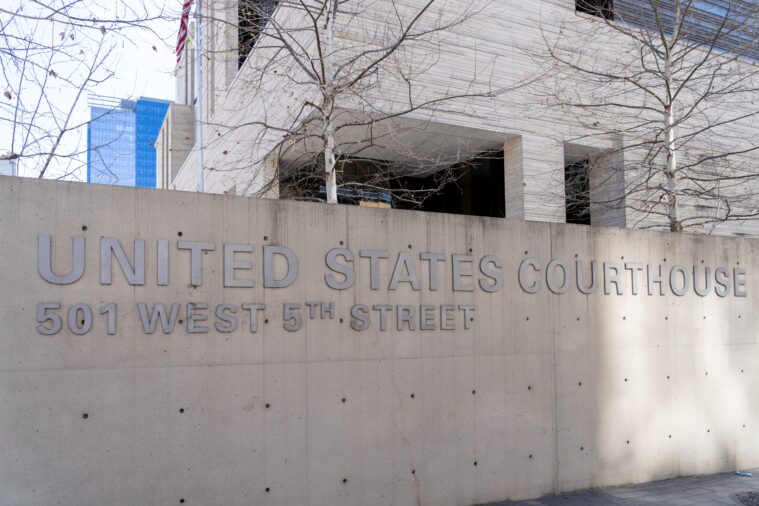
The law also makes it a crime to reenter or be “at any time found” in Texas after having been previously removed from the United States under SB 4 or by the feds. Unlike the comparable federal crime, SB 4’s reentry provision makes no exception for deportees who receive permission from the U.S. government to return. SB 4’s crimes may be enforced anywhere in Texas—where 20 percent of residents are foreign-born—including months or years after a person arrived. They may be enforced by state or local police. Unlike other anti-immigrant statutes in the Lone Star State and elsewhere, the law does not prohibit racial profiling in enforcement. It also does not exempt people in the process of seeking asylum.
“Texas cannot run its own immigration system,” the United States argued in its complaint, which it says it filed to preserve “the federal government’s exclusive authority to regulate the entry and removal of noncitizens.”
Department of Justice Attorney Brian Boynton echoed the written complaint at Thursday’s hearing, during which he received only occasional and mild pushback from the judge.
SB 4 would not only violate the balance of federal and state powers, the feds argued, but also the constitutional edict that the national government may “establish an uniform Rule of Naturalization.” Further, it undermines the United States’ ability to control foreign relations—as evidenced by Mexico’s swift condemnation of SB 4 and stated rejection of “any measure that allows state or local authorities to detain and return Mexican or foreign nationals to Mexican territory.”
The government’s case relies heavily on a 2012 U.S. Supreme Court ruling, Arizona v. United States, in which a five-justice majority struck down most of a notorious anti-immigrant law in Arizona and reaffirmed the federal government’s “broad, undoubted power over the subject of immigration and the status of aliens.” SB 4’s specifics differ from the Arizona law, but it broaches the same fundamental question of the states’ ability to control international migration. If anything, “SB 4 undermines federal immigration law even more directly than Arizona’s law,” the United States claims.
Prior to SB 4’s passage in a chaotic fourth special legislative session late last year (see Ezra’s comment about sloppy drafting), both Texas Governor Greg Abbott and Attorney General Ken Paxton voiced a desire to overturn the Arizona precedent—with the Supreme Court having shifted right during Trump’s presidency—a goal for which SB 4 is now the potential legal vehicle. The law is also an escalation of Abbott’s three-year-old border scheme, Operation Lone Star, during which he’s relentlessly tested the bounds of state power and purposely provoked the Biden Administration for political gain.
In its written response to the federal complaint, Texas argued that its law actually does not run afoul of Arizona since the details of Arizona’s anti-immigrant law were different. The state also said (wrongly) that its law should stand because it merely “duplicates” federal statutes. In doing so, the state is attempting to drastically curtail the prevailing interpretation of the Supreme Court’s Arizona holding.
Bigger-picture, Texas argued in its response brief and at Thursday’s hearing that, essentially, all legal bets are off because the Biden Administration has abandoned the Lone Star State to face “a full-scale invasion of transnational criminal cartels across our southern border.”
“Under no reasonable understanding can irregular migration or criminal cartels’ smuggling activities amount to an ‘invasion’ justifying Texas engaging in ‘war.’”
This argument hinges on an obscure constitutional clause, which has lately come in vogue on the political right, outlining that states may not engage in war “unless actually invaded.” Many legal experts, citing the Constitution’s drafting history, have pointed out that even a large number of unarmed asylum-seekers and economic migrants do not constitute an “invasion.” Ian Millhiser, a senior correspondent at Vox and Supreme Court expert, has written that the claim “is, to put it mildly, a terrible legal argument.” Such rhetoric is also plainly dangerous, as racist killers like the 2019 El Paso mass shooter have echoed it before carrying out xenophobic atrocities. Yet Texas’ leaders persist in repeating it.
In its brief, Texas argued that the governor’s declaration of an “invasion” legally justifies SB 4 and that his decision is unquestionable. “There is no basis to second-guess Governor Abbott’s determination that a sudden and unprecedented influx into Texas of hostile non-state actors … justify Operation Lone Star’s initiatives, including the enactment and implementation of SB4,” the state said.
“Texas is empowered to take all necessary steps to repel the cartel invasion at our southern border by ‘engag[ing] in War.’”
Responding to Texas, the United States argued bluntly that, “Under no reasonable understanding can irregular migration or criminal cartels’ smuggling activities amount to an ‘invasion’ justifying Texas engaging in ‘war’”—noting, in passing, that SB 4 is not an act of war anyway.
At Thursday’s hearing, Ezra appeared to dismiss the invasion argument. “I really do not see any evidence that Texas is at war, although that rhetoric has been used by some Texas politicians,” the judge said, adding that even if a temporary invasion existed it would not justify a permanent statute like SB 4.
If he enjoins the law, Ezra strongly suggested he would not temporarily stay his own injunction, as has sometimes happened in other cases. He also said he expects his decision to be appealed to the Fifth Circuit and, ultimately, “It would not surprise [him] at all that this case would find its way to the U.S. Supreme Court.”

